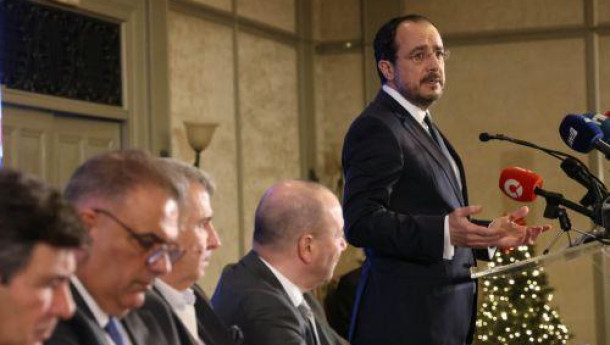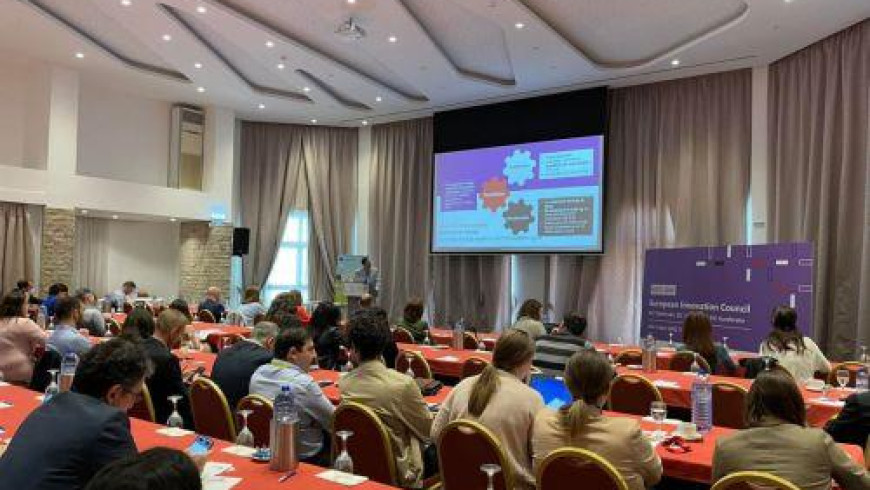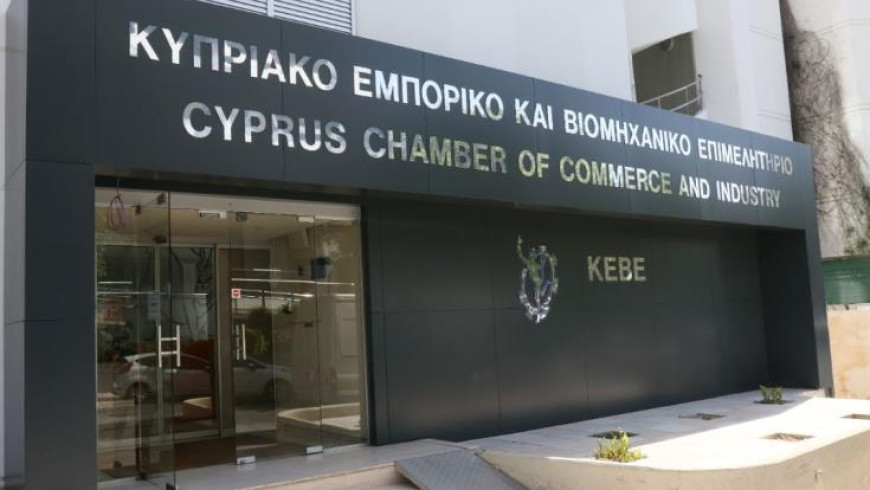
The government is working based on a specific plan with a view to create the necessary conditions for an economy that will withstand challenges and flourish even more, Cyprus President, Nikos Christodoulides told the General Assembly of the Cyprus Chamber of Commerce and Industry (CCCI), on Thursday evening in Nicosia.
President Christodoulides also announced the presentation early next year of a comprehensive proposal for tax reform, the announcement in early January of a large number of services that are to be digitised within 2025 and the preparation of a new updated and targeted policy for the competitiveness and internationalisation of the Cypriot industry. He also said the government was already working on the revision of the strategy for the employment of foreign nationals, so that its implementation could start at the beginning of the year.
The government's philosophy, the President said, is based on the belief that a healthy and thriving business community brings multiple benefits to the society as a whole and, consequently, its main concern is the creation of the necessary conditions to facilitate and strengthen business activity.
“The first and basic prerequisite in this direction is the creation of a stable macroeconomic environment, resilient to the external challenges that, inevitably, constantly arise”, he noted.
He added that in 2024 Cyprus is projected to achieve the third highest growth rate in the eurozone with a rate of 3.8% of its GDP, inflation is expected to decrease to 2%, from 3.5% last year, while its fiscal position is also strong, with a surplus that will reach approximately 4% and the largest, as he said, reduction in public debt among the EU member states, between the first and second quarters of 2024, to 69% of the GDP, with the aim of reducing it below 60% of GDP by 2026.
Cyprus’ continuous credit rating upgrades by rating agencies has been “a vote of confidence in the implemented economic policy”, he also said. He noted the most recent ones from Fitch and Moody’s, which now classify the country, after 13 years, in category A.
“The upward trajectory of the economy and the continuous upgrades are translating into concrete results, tangible advantages for businesses, households and all the people of Cyprus”, President Christodoulides also said.
Recalling that in January 2026 Cyprus will assume the rotating Presidency of the Council of the European Union, he said that preparations are underway for the country’s contribution to promoting the European agenda to the benefit of businesses and citizens.
As regards the domestic situation, he said that “significant and bold reforms” are being promoted that directly affect businesses, and that in early 2025, tax transformation experts will present a comprehensive tax reform proposal, aiming to simplify the country’s “already competitive tax system” and introduce incentives to attract productive investments in targeted sectors where there is comparative advantage, as well as to facilitate the green and digital transition.
Regarding the reduction of energy costs for businesses, he referred to the approval a few weeks ago by the Council of Ministers of the first scheme for storing electricity from renewable sources, adding that the liberalization of the electricity market, within 2025, would also significantly contribute to the competitiveness of the energy sector and consequently to the reduction of costs.
On the issue of reducing red tape, he said that the main actions include the digital modernisation of public services through the gov.cy portal, online platforms for submitting applications, improving the digital infrastructure and training of employees, as well as improving interoperability between government systems, describing the “Digital Citizen” project as “an emblematic initiative”.
On his part, the President of the CCCI, Stavros Stavrou, said in his speech said that the resolution of the Cyprus issue would “greatly strengthen the economy, the prospects of Cypriot businesses and by extension the well-being of society”.
Regarding tax reform, he said that the country and the economy needed a modern, flexible and simple to implement tax framework that will cover the new needs of the state and would facilitate the attraction of foreign investments.
The President of the Cyprus Employers and Industrialists Federation (OEV), Antonis Antoniou, referred to the need to accelerate the delivery of justice, promote tax reform and digital transformation.
Cyprus has been divided since 1974, when Turkey invaded and occupied its northern third. Repeated rounds of UN-led peace talks have so far failed to yield results. The latest round of negotiations, in July 2017 at the Swiss resort of Crans-Montana ended inconclusively.














 3287.99
3287.99 1275.09
1275.09
